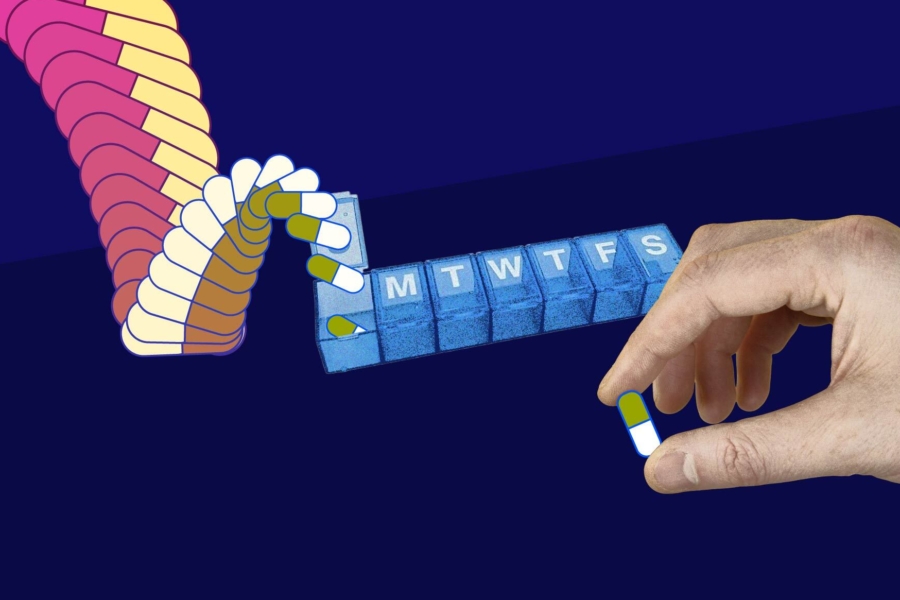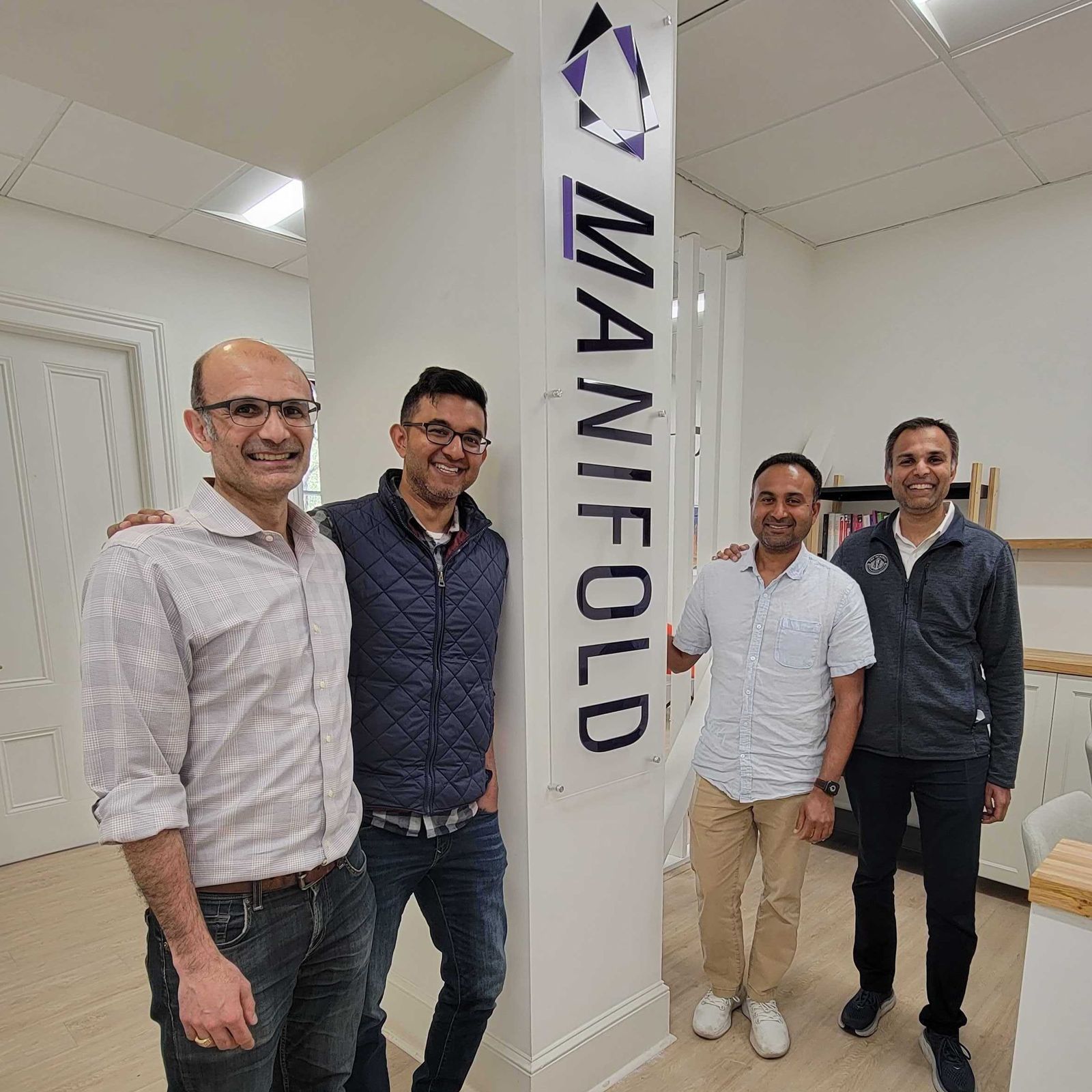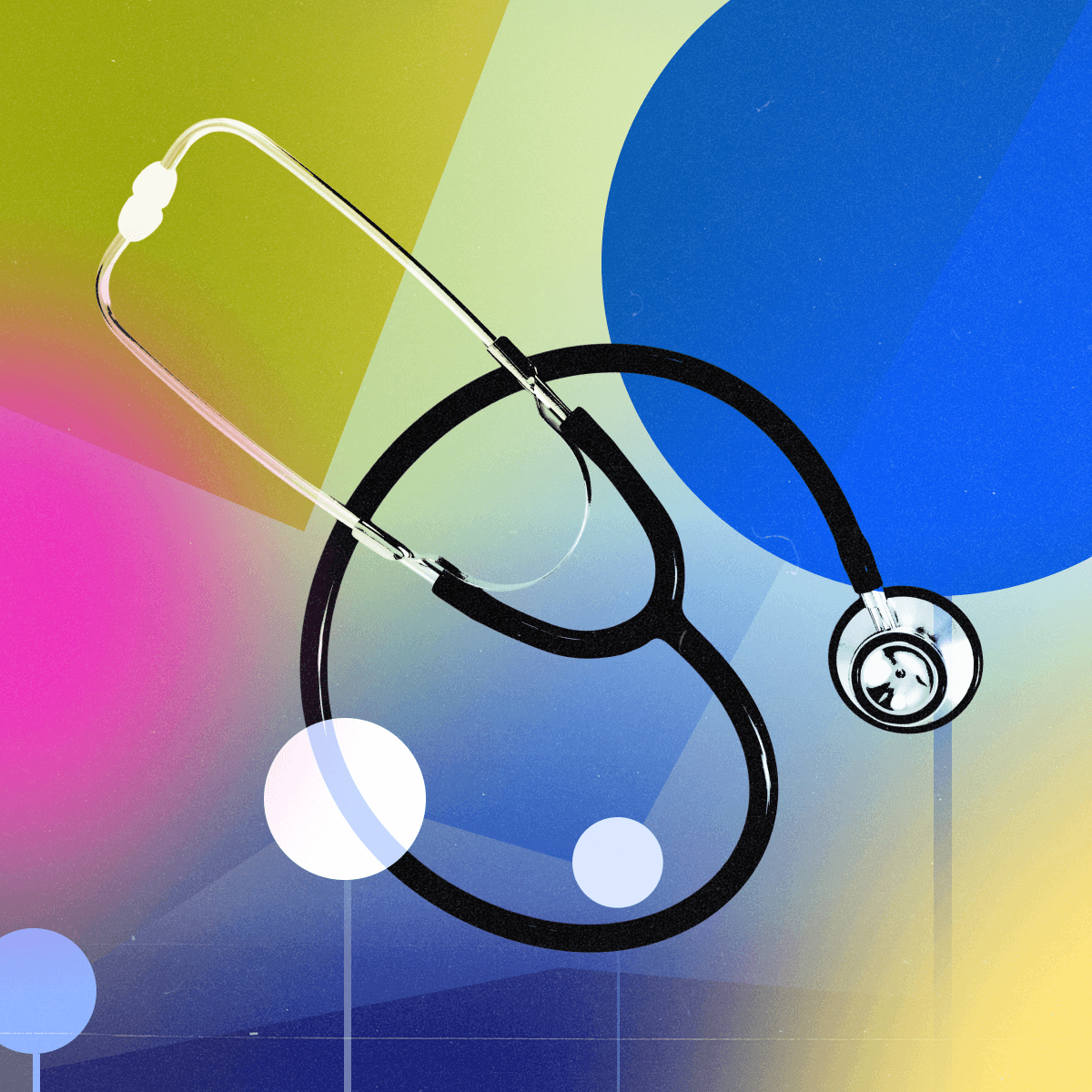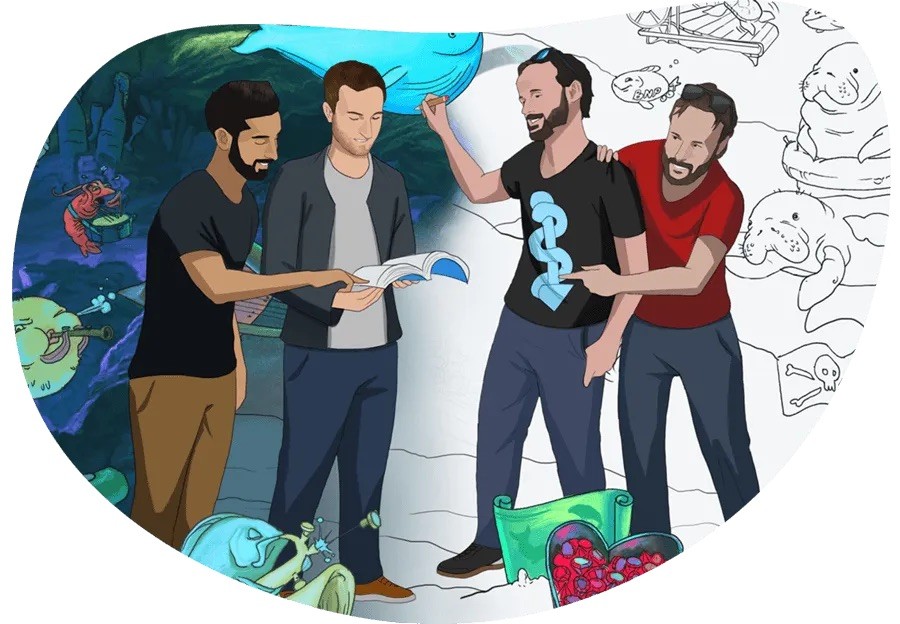Shrinking Our Pill Box: The Health Revolution in Smarter Supplements, Foods and Deprescribing

My mornings follow a familiar script: Wake up. Work out. An immunity shot, and a balanced breakfast. Then before I even open my laptop, I line up my pill box:
- Supplements for gut health: check
- Supplements for fertility: check
- Supplements for sleep: check
- Pills for allergies: check
- Pills for mental health: check
This ritual is a pretty common story: Americans today are taking more prescription drugs and supplements than ever before. What feels like a personal routine is becoming a national habit — one with important and often misunderstood consequences. While I am an ardent believer in modern medicine, I’m left asking: how can we shrink our pill box?
Growing Pill Boxes, Declining Quality of Life
Polypharmacy — the regular use of five or more prescription medications — has nearly doubled in the U.S. over the past two decades. Among older adults, it’s even more striking: over 40% of Americans above the age of 65 now take at least five prescription drugs monthly, compared to just 24% in 2000. Many stay on these medications for years, sometimes for life.
The pill box grows even more when you add supplements. Over 57% of adults use supplements, with nearly 14% using four or more daily. Funny (or sad) enough, the U.S. pill organizer market is expected to grow to $1.25 billion by 2035!
To be clear, the use of medications and supplements is not inherently bad. But we should understand the tradeoffs involved.
- Financial costs: In the U.S. the average adult spends upwards of $1,500 out of pocket for prescription drugs. That figure grows up to $3,000 for polypharmacy patients and those with chronic conditions. In total, that adds up to nearly $500 billion spent every year on prescription drugs in America. Moreover, the typical adult also spends about $510 annually on supplements, contributing to an estimated $64 billion industry.
- Quality of life: As the number of medications taken increases, so does the potential for adverse side effects. Studies have linked polypharmacy to cognitive impairment, especially for older adults for whom the risk of falling (leading to fractures and injuries) increases 1.5X to 2X. The CDC estimates that over 1.5 million emergency department visits every year are due to adverse drug interactions and dosing errors.
Even more worrisome, polypharmacy is linked with higher acute kidney injury, liver injury, and worse physical function. And the more drugs a person has to take, the less likely they are to adhere to their prescription regimen, which may lead to worsening issues. - Efficacy: Some of the most popular drugs have truly questionable long-term efficacy.
Take, for example, anti-depressants — which an estimated 10% of American adults are on. The median use is 5 years, and one-quarter of users report that they’ve been on one for more than 10 years. This is despite the absence of rigorous research that shows anti-depressants are effective beyond 12 months. In fact, the average duration of placebo-controlled RCTs is only 8 weeks, meaning we do not have a clear sense of the efficacy beyond that time period. A meta-analysis found that going through therapy while tapering down on anti-depressants can provide similar relapse prevention to just using the medication alone. Clinical guidelines recommend using anti-depressants for acute care for 6-12 weeks, and continuation for 4-9 weeks. Only if a patient has a recurring or chronic condition is medication recommended for two years.
Supplements are just as questionable. Most research indicates that using vitamins for specific deficiencies over a small period of time can be beneficial. But the regular use of generic and bloated supplement stacks has very little basis in science. In fact, the U.S. Preventive Services Task Force found little evidence for the benefits of taking multivitamins to prevent cardiovascular disease or cancer.
Over-taking certain supplements can lead to real harm: the share of liver injuries from dietary supplements rose from 7% in 2004 to 20% in 2023. There are also known issues with the supplement supply chain given that regulations and oversight are murky; for instance, a study found that 22 out of 25 melatonin products were mislabeled.
The result is a system where patients pay more, feel worse, and stick with regimens that may not even deliver long-term benefits. For builders, this is a once-in-a-generation chance to re-architect patient health to reduce the dependency on pharmaceutical drugs.
Solutions We’re Seeking
The best way to shrink the pill box is to focus on preventative and personalized care so that people don’t need to get on drugs in the first place. We cover some of these solutions in our theses on the future of consumer-centric healthcare and gut health. Here, we are looking instead at solutions that can safely reduce the number of medications and supplements that consumers are already on.
Solutions to Institutionalize Deprescribing
Deprescribing is the supervised process of tapering or stopping unnecessary medications. In surveys, 70-80% of older adults said they would be interested in quitting at least one medication if their doctor said it was safe. Despite this mass interest and research showing that it is possible for certain drugs, this is not an institutionalized practice for physicians due to a lack of clinical education on safe deprescribing.
Clinical guidelines are typically based on single conditions, so for a patient with asthma and diabetes, each ailment would come with 3-4 suggested medicines. As the number of conditions increases, so does the list of recommendations. But there are no proper and safe guidelines for deprescribing medications at scale.
There is also a lack of incentives via insurance reimbursements to provide this type of care. In addition, doctors do not always know what other doctors may be prescribing a patient.
That said, we expect the demand from consumers to deprescribe to only increase as the population ages and more people try to wean off of drugs that have exploded in popularity like GLP-1’s. For context, 75% of people who start a GLP-1 stop using it within two years, but many regain some, if not all, of their weight back. We suspect there will be demand for safe tapering pathways that help them make healthy lifestyle modifications to maintain weight loss.
We are interested in solutions that can enable clinicians to institute deprescribing as part of their work. For example, TaperMD and Prescriby help clinicians track and wean their patients off of addictive medications. Over time, we hope that these solutions can capture enough data on outcomes improvement to make this type of care reimbursable by insurance at scale. We are also interested in an emerging category of care delivery companies that are providing these services themselves in an evidence-backed way, such as Outro, which uses hyperbolic tapering to help patients get off anti-depressants.
Smart Supplements
Supplements can be great when they are hyper-targeted and used for a relevant, finite period of time. That said, there is currently considerable time and cognitive load required to effectively understand our deficiencies via regular lab work, and then find the right supplements. We are interested in solutions that help ease this for patients so that they can regularly update their supplement stack in the most effective and affordable way.
Solutions in this category include Supp, which help users track and optimize their supplement stack based on their health goals, affordability, and quality of the supplement (I just wish it integrated with Function Health so that it could update based on my lab work), and Care/of and Persona, which create personalized daily supplement plans for consumers.
Food as Medicine
At Reach, we are huge believers in the power of food as medicine. A study by Tufts found that prescriptions for monthly produce for people with diabetes and food insecurity could prevent 300,000 cardiovascular disease events over a 25-year period and reduce health care spending by $40 billion. Medically tailored meals are associated with reductions in hospitalizations, skilled nursing admissions, and overall healthcare costs.
For example, one healthcare system reported 49% fewer hospitalizations, 72% fewer admissions to skilled nursing facilities, and 16% lower health care costs among participants in a Food Is Medicine (FIM) program. We are interested in solutions that help consumers enjoy food as medicine more seamlessly like FoodHealth Co (a Reach portfolio company), which partners directly with retailers and manufacturers to help consumers make healthier choices. We also are interested in the companies that help scale the operationally difficult parts of FIM programs like Morrissey Market, which partners directly with healthcare systems and food distributors to make prescribing food as medicine as easy as clicking a button.
If you’re building solutions to help patients (or me!) shrink their pill box, please reach out to jomayra@reachcapital.com!







